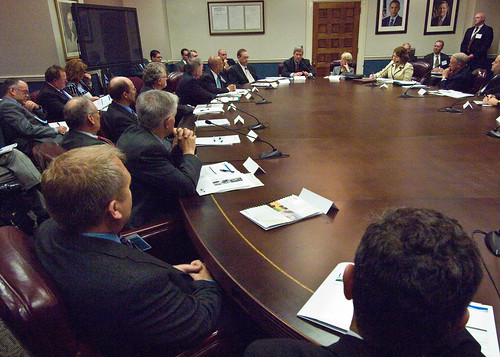There are four basic types of legislation that are handled by Congress. They include bills, simple resolutions, joint resolutions and concurrent resolutions.

Bill
A bill is the most common type of legislation and can be either permanent or temporary. It may also be general or special in nature; public or private. Bills can originate in either the Senate or the House of Representatives with one exception, which is provided for under Article 1, Section 7 of the Constitution and allows for bills that raise revenue to originate in the House of Representatives. General appropriation bills typically originate in the House of Representatives by tradition. A public bill affects the public in general while a private bill is one that affects a private party or specified individual.
Typically, a private bill will be used to achieve relief in matters regarding naturalization and immigration or claims against the United States. A bill will only become law once it has been agreed to in identical form by both bodies and only after the president has approved it, overridden a presidential veto by a 2/3 vote or returned with objections by the president to the House in which it originated within 10 days in which Congress is in session.
More:
- See Ch. 2. E. Bills, in Congressional Procedure
- Bills / Measure / Passed (CongressionalGlossary.com)
Joint Resolutions
A joint resolution may originate in either the Senate or the House of Representatives, even though it is often assumed that this type of legislation originates in both houses. There is actually not much difference between a joint resolution and a bill, but one difference is that a joint resolution can include a preamble that precedes the resolving clause. In the event a joint resolution amends the Constitution and is approved by 2/3 of both Houses, it does not need to be presented to the President for approval. Instead, it is sent to the Archivist of the United States to be submitted to the states for ratification.
More:
- See Ch. 2. F. Joint Resolutions, in Congressional Procedure
- Joint Resolution (CongressionalGlossary.com)
Concurrent Resolutions
A matter that affects the operations of both chambers of Congress is typically initiated through a concurrent resolution. They are often used for expressing opinion, principles, facts and purposes of the two houses of Congress.
More:
- See Ch. 2. G. Concurrent Resolutions, in Congressional Procedure
- Concurrent Resolution (CongressionalGlossary.com)
Simple Resolutions
A matter that concerns the rules, opinion or operation of either House alone is begun with a simple resolution. A simple resolution will be considered only the House in which it is introduced. When a simple resolution is adopted, it is attested to by the Secretary of the Senate or the Clerk of the House of Representatives and then published in the Congressional Record.
More:
- See Ch. 2. H. Simple Resolutions, in Congressional Procedure
- Simple Resolution (CongressionalGlossary.com)
- “Bills, Resolutions, Nominations, and Treaties: Characteristics and Examples of Use,” CRS Report R46603 (14-page PDF
 )
)
For more information about these four major types of legislation, see Chapter 2. Introduction of Legislation, in Congressional Procedure: A Practical Guide to the Legislative Process in the U.S. Congress, by Richard Arenberg
Courses
- Congressional Operations Briefing – Capitol Hill Workshop
- Drafting Federal Legislation and Amendments
- Writing for Government and Business: Critical Thinking and Writing
- Custom Training
- Drafting Effective Federal Legislation and Amendments in a Nutshell, Audio Course on CD
- Congress, the Legislative Process, and the Fundamentals of Lawmaking Series, a Nine-Course series on CD
Publications
CongressionalGlossary.com, from TheCapitol.Net
For more than 40 years, TheCapitol.Net and its predecessor, Congressional Quarterly Executive Conferences, have been teaching professionals from government, military, business, and NGOs about the dynamics and operations of the legislative and executive branches and how to work with them.
Our custom on-site and online training, publications, and audio courses include congressional operations, legislative and budget process, communication and advocacy, media and public relations, testifying before Congress, research skills, legislative drafting, critical thinking and writing, and more.
TheCapitol.Net is on the GSA Schedule, MAS, for custom on-site and online training. GSA Contract GS02F0192X
TheCapitol.Net is now owned by the Sunwater Institute.
Teaching how Washington and Congress work ™





